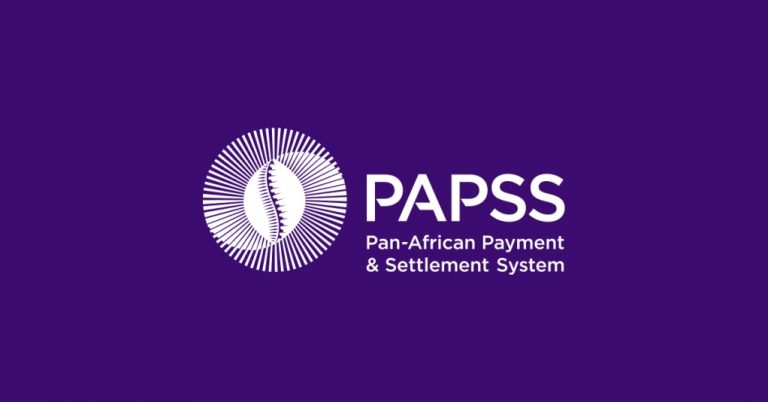
In a bold step aimed at improving cross-border payment efficiency and deepening regional trade integration, the Central Bank of Nigeria (CBN) has directed all banks operating within the country to commence the use of the Pan-African Payment and Settlement System (PAPSS) for originating transactions.
The directive, which took effect through a circular issued on April 28, 2025, marks a significant shift in Nigeria’s approach to facilitating payments across African borders. It comes amid efforts to fully align Nigeria’s banking system with the African Continental Free Trade Area (AfCFTA) initiative.
According to the apex bank, the decision follows a recent overhaul of the documentation framework governing PAPSS transactions in Nigeria. The new rules are designed to streamline participation for financial institutions, corporate exporters, and importers, as well as individuals, in order to maximize the benefits of intra-African commerce.
Register for Tekedia Mini-MBA edition 19 (Feb 9 – May 2, 2026).
Register for Tekedia AI in Business Masterclass.
Join Tekedia Capital Syndicate and co-invest in great global startups.
Register for Tekedia AI Lab.
The statement, signed by the CBN’s Acting Director of Corporate Communications, Mrs. Hakama Sidi Ali, underscores the bank’s intention to promote inclusive financial systems while reducing the country’s reliance on the U.S. dollar for regional trade settlements.
Simplified Requirements for Low-Value Transactions
Under the revised policy, the CBN introduced a key change that simplifies documentation for low-value transactions. Individuals transacting up to $2,000—or the naira equivalent—can now rely on Know Your Customer (KYC) and Anti-Money Laundering (AML) documents already filed with their banks. The same applies to corporate entities engaging in transactions up to $5,000.
For higher-value deals, however, full documentation as stipulated in the CBN’s Foreign Exchange Manual remains mandatory. The bank reiterated that exporters and importers are solely responsible for ensuring regulatory documents are submitted to relevant government agencies during goods clearance.
In a move that points to greater liberalization of the forex market, the CBN also granted Authorized Dealer Banks permission to source foreign exchange for PAPSS settlements directly from the Nigerian Foreign Exchange Market, eliminating the need for CBN intervention.
The circular makes it clear that all export proceeds routed through PAPSS must be certified by the processing bank. This is to ensure compliance with Nigeria’s export laws and prevent abuse of the new framework.
Banks have been given the mandate to upgrade their internal infrastructure to accommodate PAPSS transactions, while businesses and individuals are encouraged to familiarize themselves with the updated documentation rules and take advantage of the opportunities PAPSS offers.
A System Built for African Trade
Launched in January 2022 by Afreximbank in partnership with the African Union and AfCFTA Secretariat, PAPSS was designed to tackle one of Africa’s biggest trade bottlenecks: inefficient and expensive cross-border payment systems that depend heavily on third-party currencies like the U.S. dollar or the euro.
PAPSS eliminates conversion delays, lowers transaction costs, and increases liquidity within Africa’s trading corridors by enabling instant settlement in local currencies. For Nigeria, which remains one of Africa’s largest economies, the adoption of PAPSS is expected to create new avenues for trade expansion, especially among West African neighbors.
The system also allows for real-time payment settlement across participating countries, strengthening confidence among trading partners and reducing the administrative burden associated with currency exchanges.
Implications for Nigeria’s Regional Trade Position
This latest directive from the CBN sends a strong signal of Nigeria’s commitment to the AfCFTA agenda. It represents a decisive effort to harmonize trade infrastructure with continental objectives and to shift Nigeria’s trade reliance away from global currencies toward a more self-sustaining regional ecosystem.
For Nigerian banks, the immediate task will be to operationalize PAPSS functionality, adapt to new compliance requirements, and educate customers on how to take advantage of the platform. This could mean revamping internal compliance systems and increasing awareness among corporate clients.
Exporters and importers stand to gain the most, particularly small and medium-sized businesses that often struggle with access to foreign exchange and the costs associated with cross-border transactions. With PAPSS, they can now trade using the naira while their trading partners receive payment in their local currency—eliminating the need for U.S. dollars or euros as intermediaries.
While the new rules may take some time to embed across the banking sector, the long-term benefits for the economy are clear: faster transaction times, lower costs, and deeper trade linkages with African counterparts.
Against the backdrop of Nigeria’s forex shortages and external pressures on its reserves, financial experts believe that PAPSS could offer a strategic solution to reduce the economy’s dollar dependency and improve financial sovereignty.



